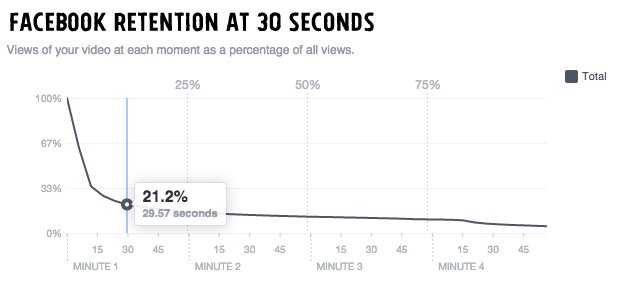Facebook video fight: strong accusations vs. weasel words
 YouTube video producer Hank Green says Facebook cheats, lies, and steals. Facebook product manager Matt Pakes responds that everything is fine. He’s not willing to admit that Facebook is the Borg.
YouTube video producer Hank Green says Facebook cheats, lies, and steals. Facebook product manager Matt Pakes responds that everything is fine. He’s not willing to admit that Facebook is the Borg.
The question here is simple: If you have a popular video, are you better off uploading and embedding it in Facebook or just linking to it YouTube? Pakes says upload to Facebook, Green says Facebook sucks. It’s a battle of words, so let’s see who uses words better.
Green published his accusations on Medium. He organized it into three subsections titled “They cheat,” “They lie,” and “They steal.” Here are a few choice excerpts:
Facebook says it’s now streaming more video than YouTube. To be able to make that claim, all they had to do was cheat, lie, and steal.
If I embed a YouTube video or Vine on Facebook, only a tiny fraction of my audience will actually see it. But if I post the same video natively on Facebook, suddenly it’s in everyone’s feed everywhere! [Green backs this up with statistics that show three times the viewing of an uploaded video versus a link to the same video on YouTube.]
 Facebook counts views significantly before people could be said to be watching the video. . . .Facebook counts the “view” at the three second mark (whether or not the viewer has even turned on the sound) in the midst of a precipitous decline in retention. At that moment, 90% of people scrolling the page are still ‘watching’ this silent animated GIF. [The graph is from Green’s post.]
Facebook counts views significantly before people could be said to be watching the video. . . .Facebook counts the “view” at the three second mark (whether or not the viewer has even turned on the sound) in the midst of a precipitous decline in retention. At that moment, 90% of people scrolling the page are still ‘watching’ this silent animated GIF. [The graph is from Green’s post.]
According to a recent report from Ogilvy and Tubular Labs, of the 1000 most popular Facebook videos of Q1 2015, 725 were stolen re-uploads. . . . They’ll take the video down a couple days after you let them know. Y’know, once it’s received 99.9% of the views it will ever receive.
On making the case, I’d rate this an A. It’s well organized. He states each point powerfully, directly, and clearly. He gets extra points for appropriate sarcasm. Nearly 2,000 people recommended the article, which implies tens of thousands of views.
How did Facebook do on the response? I give Pakes credit for speaking directly to the reader for the most part, with only a little corporate gibberish. But his counterpoints are mushy and lack backup. I’ve highlighted the weasel words:
[We] absolutely do care about digital video creators. . . .Our goal is to build and support products for video creators and to create a sustainable video ecosystem that works well for everyone. [Corporate boilerplate. When a company says stuff like this, do readers ever believe it? Then why write it?]
[W]e know that clicking on a link to play video is not a great user experience, so people tend to interact slightly less with non-native video, and the posts get less engagement. Native video posts with auto-play tend to see better engagement, more watch time and higher view counts. [This is worded like a lie; the weasel words undermine it. How much less engagement? How much higher view counts? Slightly? Not at all convincing, especially when Green’s accusations have actual statistics.]
Now, in looking at view counts, every measurement option comes with tradeoffs. While there is no broad industry standard for view measurement, three seconds is one common choice. . . . If you have stayed on a video for at least three seconds, it signals to us that you are not simply scrolling through feed and you’ve shown intent to watch that video. [Sounds to me like you picked three seconds because it inflates the view counts. When I spend three seconds watching an embedded Facebook autoplay video with no sound, it doesn’t “signal” anything but a momentary pause in scrolling.]
[W]e take intellectual property rights very seriously. We have used the Audible Magic system for years to help prevent unauthorized video content on Facebook. We also provide reporting tools for content owners to report possible copyright infringement. As video continues to grow rapidly on Facebook, we’re actively exploring further solutions to help IP owners identify and manage potential infringing content, tailored for our unique platform and ecosystem. [This doesn’t address Green’s point of the two-day delay in taking things down. It basically says “we’re working on it.”]
I’d rate Pakes’ response a C+, because it responds with generalizations to a clear set of accusations filled with facts and statistics.
Honest translation of Facebook’s response: Look, our goal is to maximize the amount of content we control. We favor our own videos and inflate our view counts because it makes uploading video to Facebook look better. We’ve underinvested in piracy protection and there’s nothing you can do about. We control the technology, the priorities, and the pace of development. Resistance is futile. You will be assimilated.
Thanks to Amir Off for bringing this example to my attention.
Photo: Star Trek Memory Alpha
One Comment